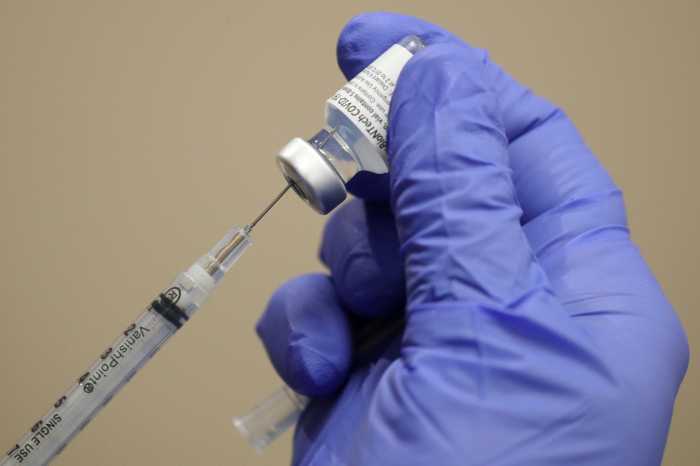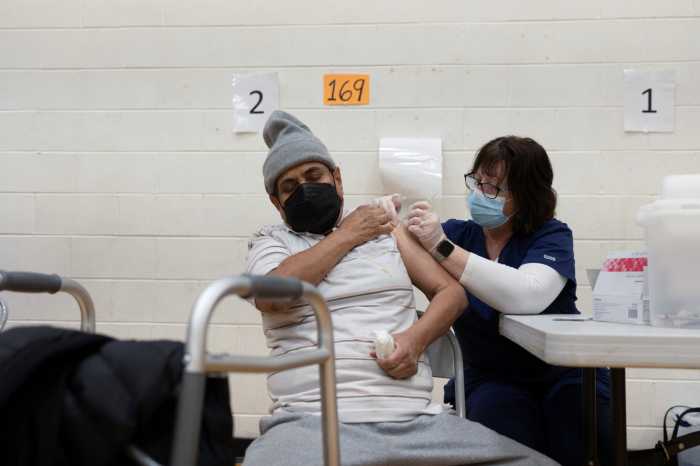By Michael Erman and Ludwig Burger
NEW YORK – Pfizer Inc. and BioNTech SE said on Tuesday they started a clinical trial to test a new version of their vaccine specifically designed to target the COVID-19 Omicron variant, which has eluded some of the protection provided by the original two-dose vaccine regimen.
Banking on volunteers in the United States, the companies plan to test the immune response generated by the Omicron-based vaccine both as a three-shot regimen in unvaccinated people and as a booster shot for people who already received two doses of their original vaccine.
They are also testing a fourth dose of the current vaccine against a fourth dose of the Omicron-based vaccine in people who received a third dose of the Pfizer/BioNTech vaccine three to six months earlier.
The companies plan to study the safety and tolerability of the shots in the more than 1,400 people who will be enrolled in the trial.
“While current research and real-world data show that boosters continue to provide a high level of protection against severe disease and hospitalization with Omicron, we recognize the need to be prepared in the event this protection wanes over time and to potentially help address Omicron and new variants in the future,” Pfizer’s head of vaccine research and development, Kathrin Jansen, said in a statement.
Depending on the amount of clinical trial data required by regulators, it may not be possible to realize a current plan to launch an Omicron-targeting vaccine by the end of March, BioNTech said.
Pfizer has said that two doses of the original vaccine may not be sufficient to protect against infection from Omicron, and that protection against hospitalizations and deaths may be waning.
Still, the U.S. Centers for Disease Control and Prevention says a third dose of an mRNA vaccine like the Pfizer/BioNTech vaccine has provided 90% protection against hospitalization due to COVID-19.
Some countries have already started offering additional booster doses, but a recent study from Israel showed that while a fourth dose of an mRNA vaccine boosted antibodies, the level was not high enough to prevent Omicron infection.
The European Medicines Agency (EMA) said on Friday that international regulators want data from clinical studies like the one being done by Pfizer and BioNTech before approval of a new vaccine.
EMA said these studies should show that the new vaccines elicit more neutralizing antibodies in the blood than current vaccines and might also protect against new variants of concern.
BioNTech declined to comment on what type of data it was asked to file with regulators.






























